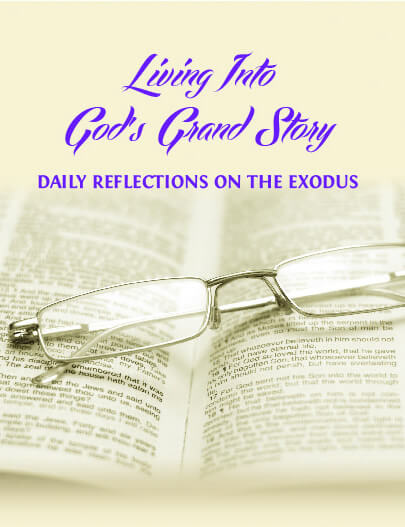
Exodus 12:1-7, 12-13
The Apostle Paul says that the things that happened to the Children of Israel in the Exodus “happened to them to serve as an example, and they were written down to instruct us” (I Corinthians 10:11). How instructive is today’s text as it presents a picture of humanity’s bondage and the sacrifice of God’s lamb that sets us free. This first Passover celebration is a portrait of Christ who as “our Passover lamb, has been sacrificed” (I Corinthians 5:7). John the Baptist proclaimed Jesus as “the lamb of God who takes away the sin of the world” (John 1:29). Time and again the Scriptures connect the Passover lamb to the person and ministry of Jesus Christ.
In today’s text it is clear that the lamb must be slain, for there is no deliverance from the bondage of Egypt without the shedding of blood. It is the blood of the lamb that launches God’s people on the Exodus journey. Here we see the significance of the shed blood to God: “When I see the blood, I will pass over”. It is when God sees the blood, and not when the people see that blood, that is important. We humans cannot fathom the depths of significance to God of the blood of the lamb.
This sacrifice points to the truth set forth in Leviticus 17:11: “For the life of the flesh is in the blood; and I have given it to you for making atonement for your lives on the altar”. Just as there is no atonement for the Israelites without the death of the lamb, so there is no atonement for us without the death of God’s Lamb, Jesus. Christ opened the way of deliverance for us.
We do not know all that the Israelites understood about that Passover or the slaying of the lamb, but they must have had some sense that “this lamb is dying for me”. They realized that it was through the blood of this lamb that they would be set free. So the Scriptures present Jesus as “the atoning sacrifice for our sins, and not for ours only but also for the sins of the whole world” (I John 2:2). In heaven we will forever worship Jesus the Lamb: “for you were slaughtered and by your blood you ransomed for God saints from every tribe and language and people and nation” (Revelation 5:9).
REFLECTION
- The Apostle Paul says that what happened to the Israelites happened as our example and to instruct us. What do you find instructive today in the slaying of the Passover lamb and the blood?
- What does it mean to you that Jesus is our Passover Lamb?


